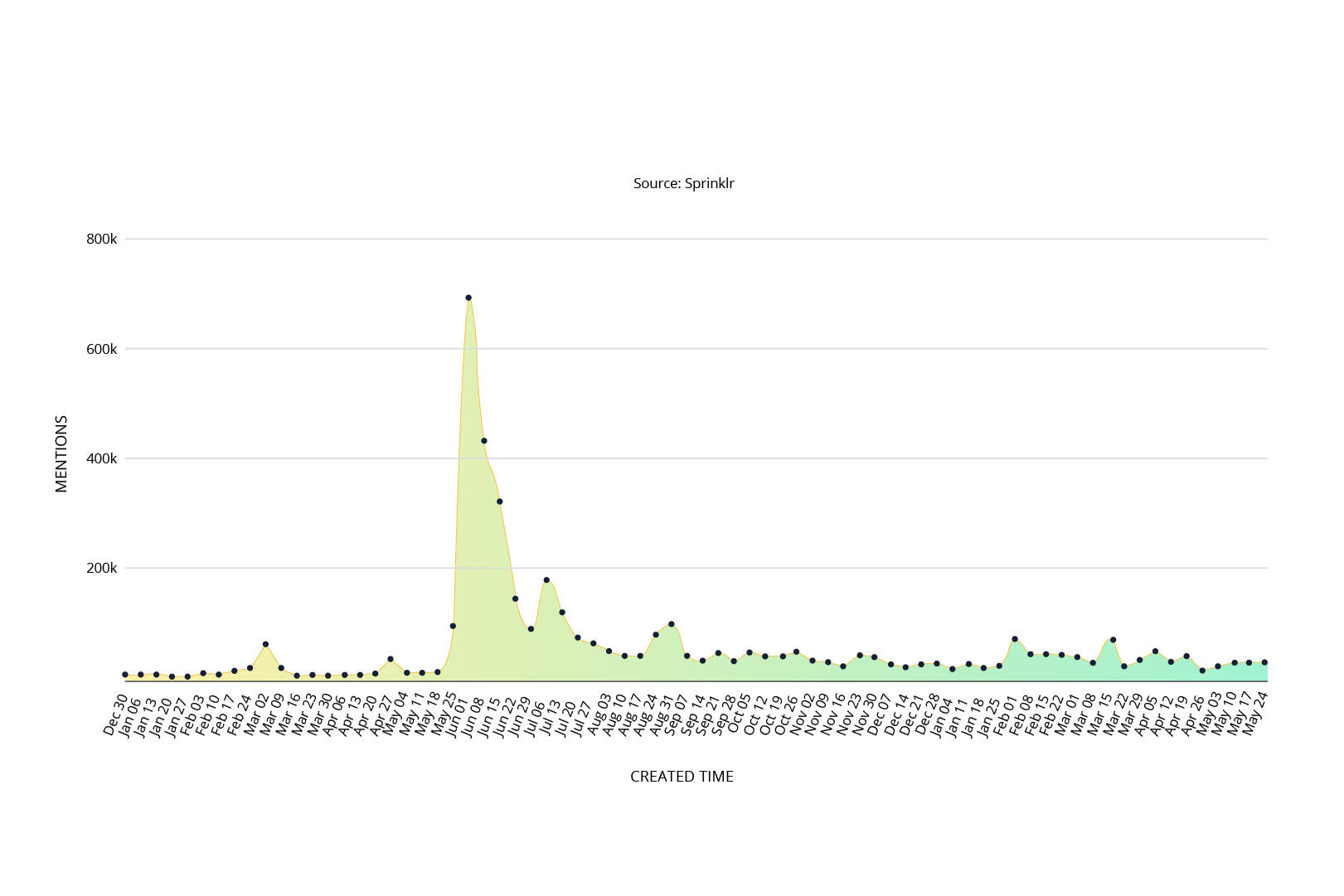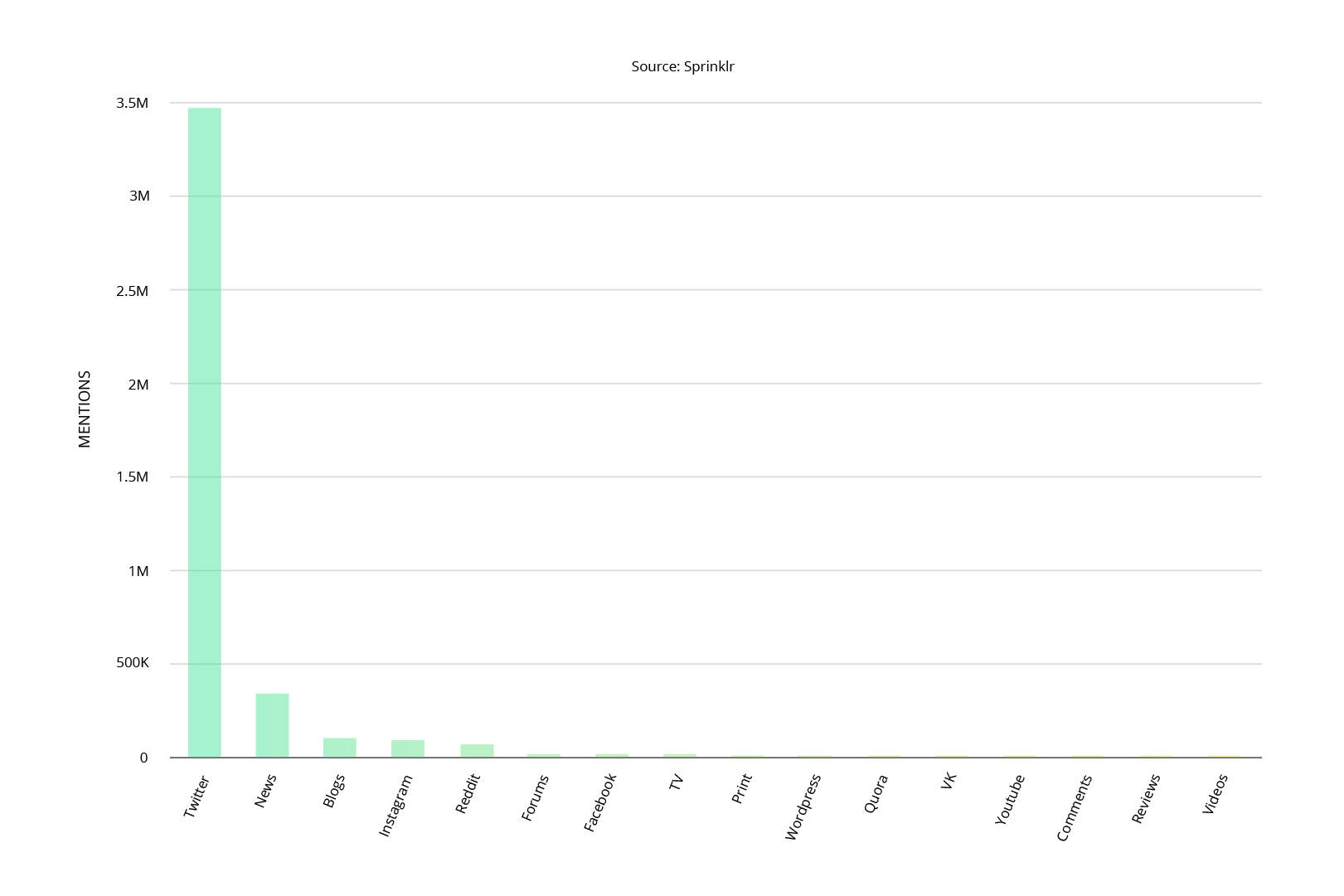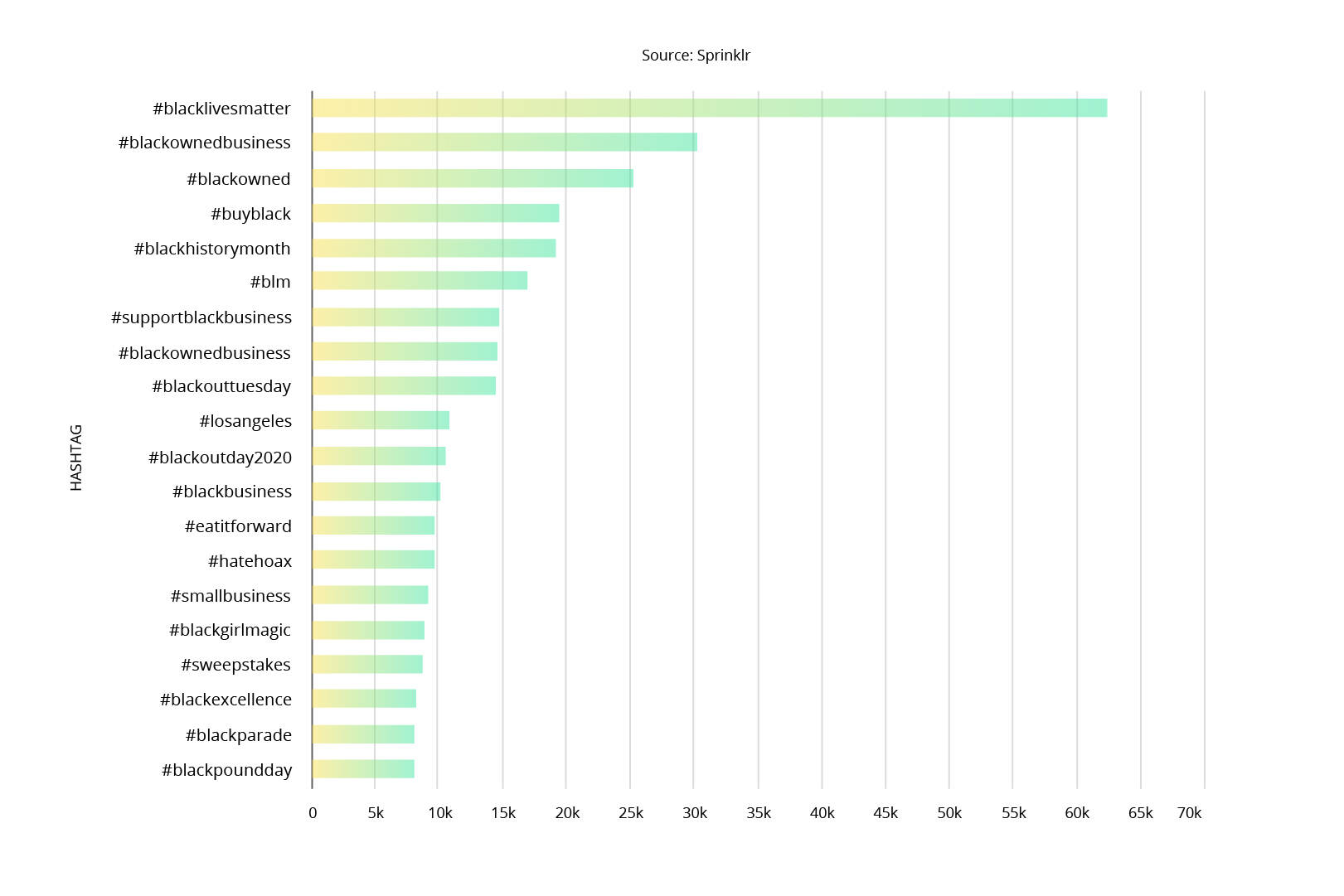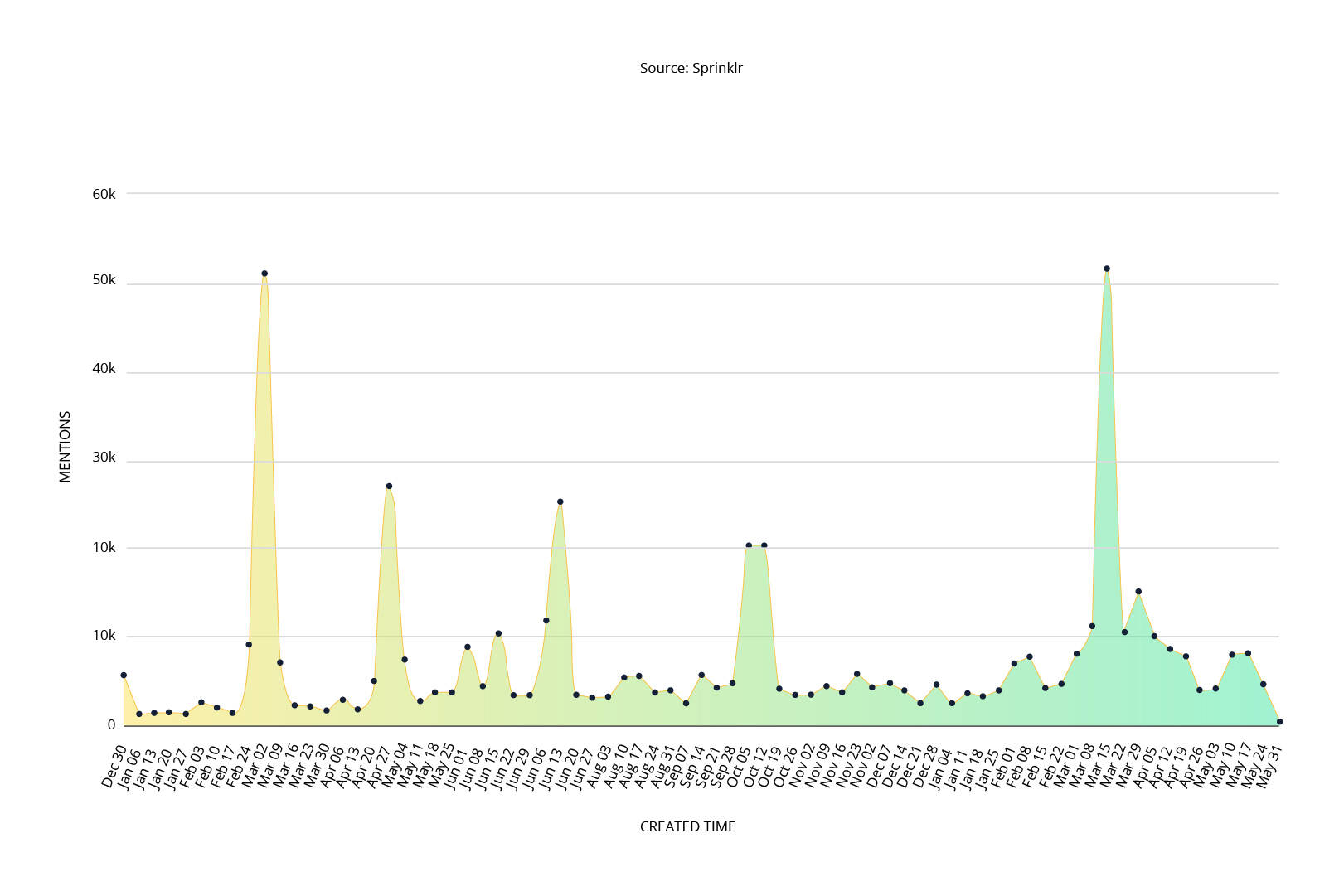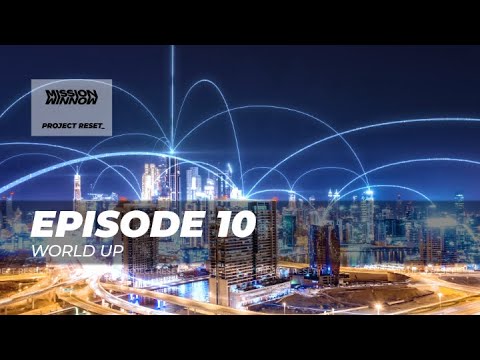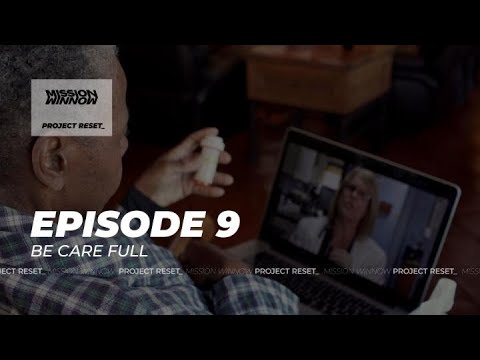Ownership marketing: are more small & medium businesses describing themselves "minority-owned"?
This past year has been one of constant change for businesses. Hit hard by a global pandemic and a social climate that cries for fairness and equality, many have reimagined and remarketed themselves in very specific ways, especially small and medium-sized business.
If social media is any indication, it seems that more and more owners are linking their race, gender or sexual orientation to their businesses in the hopes of celebrating their ventures, shining a light on minorities and garnering support. So, the question remains: are there really more small and medium businesses describing themselves as “black-owned”, “woman-owned”, and more?
To try and answer this question, we analyzed data from our social media monitoring and insights platform, Sprinklr, from January 1st 2020 until now. The numbers show a definite increase in the mention of ownership terms over time that seems to correspond with the rise of the Black Lives Matter Protests.

